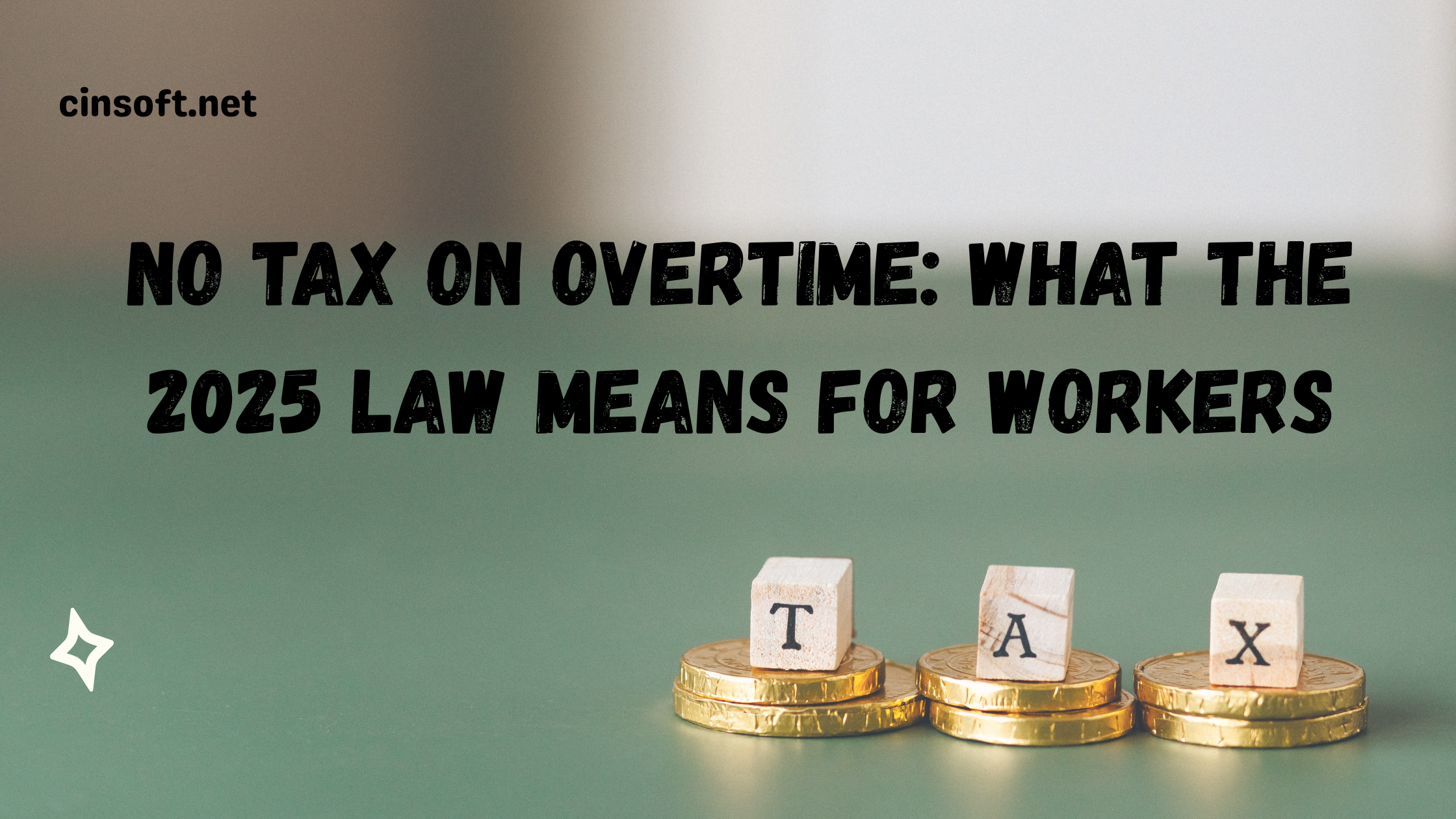What if you could earn extra income without giving a chunk of it to taxes? Thanks to new legislation under review in the U.S. Congress, that idea is becoming a reality. The “No Tax on Overtime Act of 2025” proposes a major change for millions of workers—making overtime pay exempt from federal income tax. If passed, this could significantly increase take-home pay for anyone who puts in extra hours
Here’s everything you need to know about this groundbreaking proposal, who it affects, and how it could boost your financial future.
What Is the “No Tax on Overtime” Proposal?
In March 2025, U.S. Senator Josh Hawley introduced the No Tax on Overtime Act (S.1046). The bill proposes that all income earned from overtime—defined as any hours worked beyond 40 per week—would be excluded from federal income tax.
In short: if you work overtime, you would keep 100% of that pay (except for Social Security and Medicare taxes, which still apply).
The House version, introduced earlier in January, allows a partial deduction instead of a full tax break—up to 20% of your regular income if it’s from overtime.
Who Benefits from No Tax on Overtime?
This policy mainly benefits:
- Hourly workers who frequently log overtime
- Healthcare and emergency personnel working extra shifts
- Manufacturing and warehouse employees with long hours
- Gig economy workers taking on multiple jobs
- Middle-class families looking to boost income without entering higher tax brackets
If passed, this bill could increase earnings for millions of workers who rely on overtime to cover bills, savings, or education costs.
How Much Could You Save?
Let’s say you earn $25/hour and work 10 hours of overtime a week at time-and-a-half ($37.50/hour). That’s $375 per week or around $19,500 a year in overtime.
Under the current tax system, you might lose 10–22% of that to income tax—roughly $2,000 to $4,300.
Under the proposed law, you would keep that entire amount, depending on your filing status and deductions. That’s a big raise without asking your boss for more!
What’s the Catch?
There are a few important details:
- Federal tax only – This exemption applies to federal income tax. You’ll still pay Social Security (6.2%) and Medicare (1.45%) on overtime earnings.
- It’s not law—yet – As of now, the bill is under Senate and House review. No final vote has been held, and the law isn’t in effect.
- Different versions – The Senate bill proposes full exclusion, while the House version includes income limits and partial deductions for high earners.
- May be temporary – Some versions of the bill apply from 2025 to 2028 only, with a chance for renewal later.
Why Is This Law Gaining Support?
Supporters of the “No Tax on Overtime” movement say the bill:
- Rewards hard work
- Helps workers facing high inflation
- Encourages people to work more instead of relying on government aid
- Boosts middle-class income without adding federal spending
With labor shortages in key sectors and rising costs of living, the proposal is seen as a fair way to let workers benefit more directly from their time.
What Are Critics Saying?
Some economists and lawmakers have raised concerns, including:
- Revenue loss – The government could lose billions in tax revenue, potentially affecting public programs.
- Complicated implementation – Employers would need to track overtime income separately and adjust tax forms.
- Short-term relief – Critics argue it’s a temporary fix for deeper wage stagnation and cost-of-living issues.
Still, public opinion seems largely favorable—especially among working-class voters.
What Should Workers Do Now?
Until the law is passed, continue tracking your income and withholding. However, start preparing by:
- Reviewing your pay stubs – Identify how much overtime you usually earn.
- Using a calculator – Estimate how much more you’d take home if your overtime pay weren’t taxed.
- Staying updated – Follow reliable news sources for updates on the bill’s status.
If the bill passes, payroll systems and W-2 forms may change to reflect the overtime exemption. Expect official guidance from your employer or HR department.
State Taxes Still Apply
It’s worth noting that state income tax laws won’t automatically follow this federal change. Some states may choose to pass their own versions of overtime tax relief, but unless they do, your overtime could still be taxed at the state level (if your state has an income tax).
States like Texas, Florida, and Nevada, which have no income tax, already give you the full benefit. In other states, you might still owe some taxes—just not to the federal government.
Conclusion
The proposed No Tax on Overtime law could be a game-changer for millions of workers across the United States. While it’s not in effect yet, its progress through Congress shows strong momentum. If passed, it will offer real, tangible financial relief for anyone putting in extra hours to get ahead.
Whether you’re working overtime to pay off debt, save for a home, or support your family—this law could let you keep more of what you earn. Watch the headlines closely, because 2025 might be the year overtime finally pays off, tax-free.

